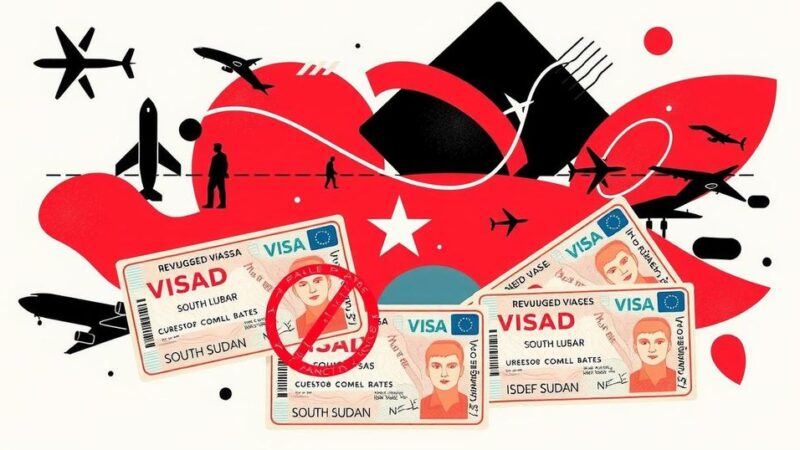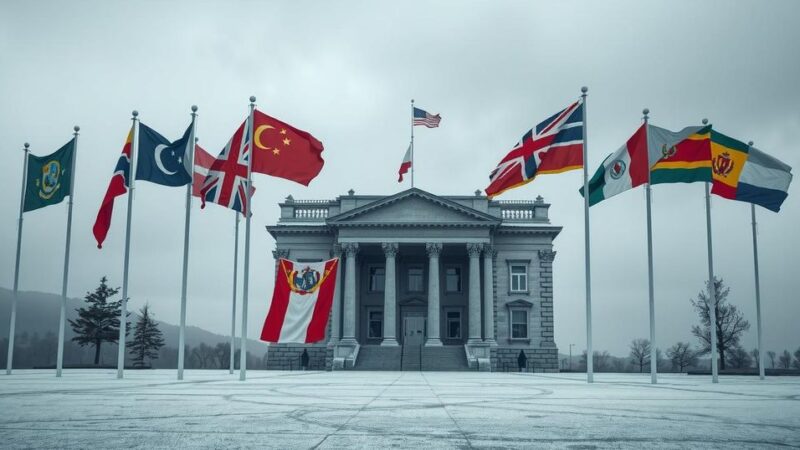The ongoing conflict in Nasir illustrates the urgent need for the South Sudan government to request international assistance for disarmament to prevent further violence. The complexities of tribal divisions and political interests necessitate external support to navigate disarmament effectively and promote long-term stability. Engaging local communities and fostering trust is crucial for successful implementation.
The conflict in Nasir exemplifies the urgent need for the Government of South Sudan to address escalating tensions that could potentially spark conflict across the nation. Recent clashes between the White Army militias and the South Sudan People’s Defense Forces (SSPDF) reveal deep-seated tribal divisions and political manipulations, which must be resolved to ensure long-term stability in the country.
It is imperative for the Government of South Sudan to actively seek international aid for disarmament across its regions. Disarming civilians, especially amid the country’s tribal complexities, is a challenging yet essential step toward achieving peace and a secure future. Partnering with respected international allies renowned for their success in disarmament could facilitate this necessary endeavor.
The violence in Nasir was exacerbated by the interference of Juba politicians who leveraged local youth militias for political advantage, leading to dangerous confrontations with the SSPDF. To mitigate further conflict and division, disarming these militias, particularly those loyal to specific political figures, is crucial.
The disarmament process requires external support, as the South Sudan government alone lacks the capacity to navigate the intricate tribal and political landscape. Securing international assistance is vital not only for maintaining security but also for mending the divisions that incite violence.
Addressing the significant challenge of tribal loyalties, the disarmament strategy must emphasize comprehensive approaches involving community engagement, building trust, and fostering bi-partisan commitment. Without such a thorough plan, sustaining peace in South Sudan may be unattainable.
Although an internationally supported disarmament initiative can alleviate community divisions, conducting elections before ensuring a stable environment would be inadvisable, particularly before the 2026 elections. The South Sudan government should actively pursue assistance for disarmament efforts throughout its various regions.
The existence of tribal militias and the evident mistrust between the government and communities can undermine peace initiatives. Disarmament extends beyond the mere collection of arms; it involves cultivating community trust and ensuring that the process is transparent, fair, and inclusive.
To ensure the effective execution of the disarmament process, the South Sudan government must engage with the international community for logistical and financial support while fostering a neutral presence that ensures fairness. Collaborating with local communities to address their concerns will help build trust and facilitate long-term stability in South Sudan.
Without these efforts, the risks of ongoing conflict and the impediment of free and fair elections persist.
In conclusion, the Government of South Sudan must urgently request international support for disarmament to address the escalating tensions and tribal divisions highlighted by the violence in Nasir. Effective disarmament will require a collaborative and strategic approach involving the international community, local engagement, and a commitment to impartiality. Failure to take these steps may result in continued unrest and the potential hindrance of future elections.
Original Source: www.radiotamazuj.org






